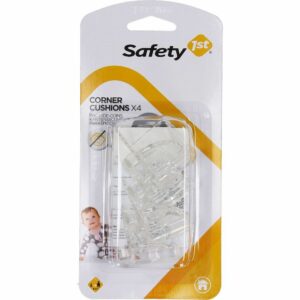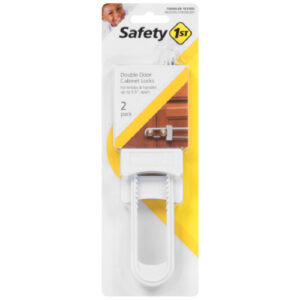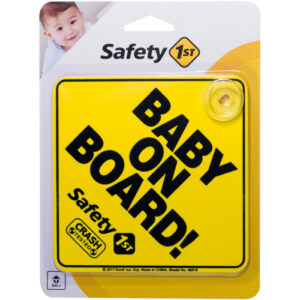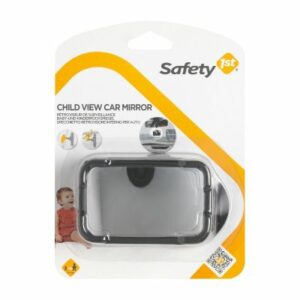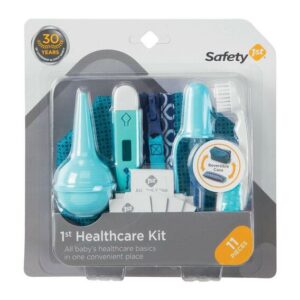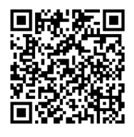The toddler years are a crucial time for language development. During this stage, children experience rapid growth in their ability to communicate, express themselves, and understand the world around them. As a parent or caregiver, you play an essential role in nurturing your toddler’s language skills and fostering their ability to communicate confidently. By providing a supportive environment, engaging in meaningful interactions, and using strategies to encourage learning, you can help your toddler develop the language skills they need to thrive.
In this article, we’ll explore practical tips and strategies to encourage language development in toddlers.
1. Talk to Your Toddler Often
The foundation of language development begins with exposure to language. The more you talk to your toddler, the more they will learn. Even though your toddler may not be able to respond with full sentences, hearing you speak will help them absorb new words and understand how language works. Try to talk to your child throughout the day, narrating your actions and describing things around them.
Tips:
- Describe your actions: For example, if you’re getting dressed, say, “I’m putting on my shoes now. Look, the shoes are blue!”
- Name objects: Point to and name things in your environment, such as “tree,” “dog,” “ball,” and “car.”
- Use simple and clear language: Speak in short sentences to help your toddler understand and repeat words more easily.
2. Read Together Every Day
Reading is one of the most effective ways to encourage language development in toddlers. Books expose children to new vocabulary, sentence structures, and ideas. By reading together daily, you create a rich language-learning experience that helps your toddler improve their listening, comprehension, and speaking skills.
Tips:
- Choose age-appropriate books: Select books with colourful pictures and simple text. Board books or picture books with repetitive phrases or rhymes are great choices for toddlers.
- Point to pictures: While reading, point to the pictures and name them. This helps your toddler connect words to images.
- Ask questions: After reading a story, ask your toddler questions like, “What colour is the ball?” or “What is the bear doing?” These questions engage your child and encourage them to think and speak.
3. Listen Actively and Respond
Active listening is just as important as speaking when it comes to language development. When your toddler talks, give them your full attention. This shows that you value what they’re saying and encourages them to continue communicating. Respond to their attempts at speech, even if their words are unclear or incomplete. This helps reinforce their language efforts and gives them a sense of accomplishment.
Tips:
- Acknowledge their attempts: If your toddler says something like “ba-ba” for a ball, respond by saying, “Yes, that’s a ball!” This validates their efforts and teaches them the correct word.
- Don’t interrupt: Let your toddler finish their thoughts before responding. It’s important that they feel heard and understood.
- Use prompts: If your toddler is struggling to find the right word, gently prompt them. For example, if they say “big,” you can say, “Is the dog big or small?”
4. Expand on What They Say
As your toddler starts to speak more, one way to encourage language development is to expand on their words. If your toddler says a word or short sentence, you can repeat it with additional detail or complexity. This teaches them how to form longer sentences and helps them learn new vocabulary.
Tips:
- Expand on single words: If your toddler says “car,” you can say, “Yes, that’s a red car.”
- Add more detail: If your toddler says “dog,” you can respond with “Yes, that’s a big dog with brown fur.”
- Model correct grammar: If your toddler says, “I goed to the park,” you can respond with, “You went to the park!” This helps them learn proper sentence structure.
5. Play and Sing Together
Play and music are powerful tools for language development. Engaging in pretend play, singing songs, and playing simple games with your toddler helps them practice words, phrases, and social interactions in a fun and relaxed setting. Songs, especially those with repetitive lyrics or motions, help toddlers remember words and associate them with actions.
Tips:
- Sing songs with actions: Songs like “Head, Shoulders, Knees, and Toes” or “The Wheels on the Bus” are great for teaching new vocabulary and encouraging movement.
- Engage in pretend play: Pretend play, such as playing house or pretending to be animals, gives toddlers a chance to practice language in different contexts.
- Use toys to encourage language: Use dolls, action figures, or animal toys to model dialogue and encourage your toddler to create stories.
6. Encourage Social Interaction with Others
Toddlers learn valuable language skills through interactions with their peers. Playdates, family gatherings, and community events provide opportunities for your child to communicate with others, practice turn-taking in conversations, and expand their vocabulary.
Tips:
- Organise playdates: Arrange playdates with other toddlers to give them a chance to practice their language skills in a social setting.
- Model social interactions: Show your toddler how to greet others, ask for things politely, and engage in conversation by modelling these behaviours yourself.
- Encourage sharing and taking turns: Social interactions, such as sharing toys or taking turns in a game, help toddlers develop important communication and social skills.
7. Limit Screen Time
While digital devices like tablets or smartphones may seem like a convenient way to entertain toddlers, excessive screen time can hinder language development. Passive activities like watching TV or playing video games don’t provide the same interactive learning opportunities as face-to-face communication.
Tips:
- Limit screen time: The American Academy of Paediatrics recommends limiting screen time for toddlers to no more than one hour per day.
- Use screen time as a learning tool: If your toddler is watching a program, make it interactive by asking them questions about the characters or what’s happening on screen.
- Prioritise active engagement: Spend more time engaging with your toddler in person through conversation, reading, and play rather than relying on screens for entertainment.
8. Be Patient and Celebrate Progress
Every child develops language skills at their own pace. Some toddlers may start speaking earlier than others, while others may take more time to express themselves. It’s important to be patient and celebrate small milestones along the way. Positive reinforcement and encouragement go a long way in helping toddlers feel confident in their abilities.
Tips:
- Celebrate every attempt: Whether it’s a new word or a full sentence, celebrate your toddler’s efforts and encourage them to keep practicing.
- Be patient with mistakes: Understand that your toddler may make mistakes with pronunciation or grammar. Instead of correcting them immediately, gently model the correct form and allow them time to learn.
- Create a positive, supportive environment: Encourage your toddler to experiment with language in a stress-free, supportive environment where mistakes are part of the learning process.
Conclusion
Encouraging language development in toddlers is about providing a rich and interactive environment where they feel supported and motivated to explore language. Through talking to your child, reading together, playing, and fostering social interactions, you can help your toddler develop strong language skills that will serve as the foundation for their future communication. With patience, consistency, and plenty of encouragement, you’ll be amazed at how quickly your toddler begins to use their new language skills in everyday life.
We understand that there are many aspects that encompass a Mother, Father or Child and strive toward providing resources and services that accommodates this.
Our content is aimed to inform and educate families on issues starting from pregnancy through to the challenges of the teen-age years.
- isiZulu Takes Centre Stage as Warner Bros. Discovery’s Kids’ Shows Launch in Local Language - February 17, 2026
- From referral to report: 7 questions patients frequently ask - February 11, 2026
- Say Hello to the Ultimate Holiday Brunch Bite - December 17, 2025



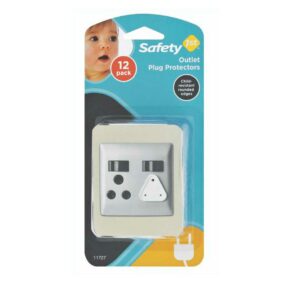 Your home will be baby ready with Safety 1st Corner Cushion 4 Pack (From R47.99). The soft, rounded foam absorbs impact. Protect your active child from sharp corners with this four-pack of foam bumpers; they easily apply to tables, counters, and other furniture to soften sharp corners.
Your home will be baby ready with Safety 1st Corner Cushion 4 Pack (From R47.99). The soft, rounded foam absorbs impact. Protect your active child from sharp corners with this four-pack of foam bumpers; they easily apply to tables, counters, and other furniture to soften sharp corners.